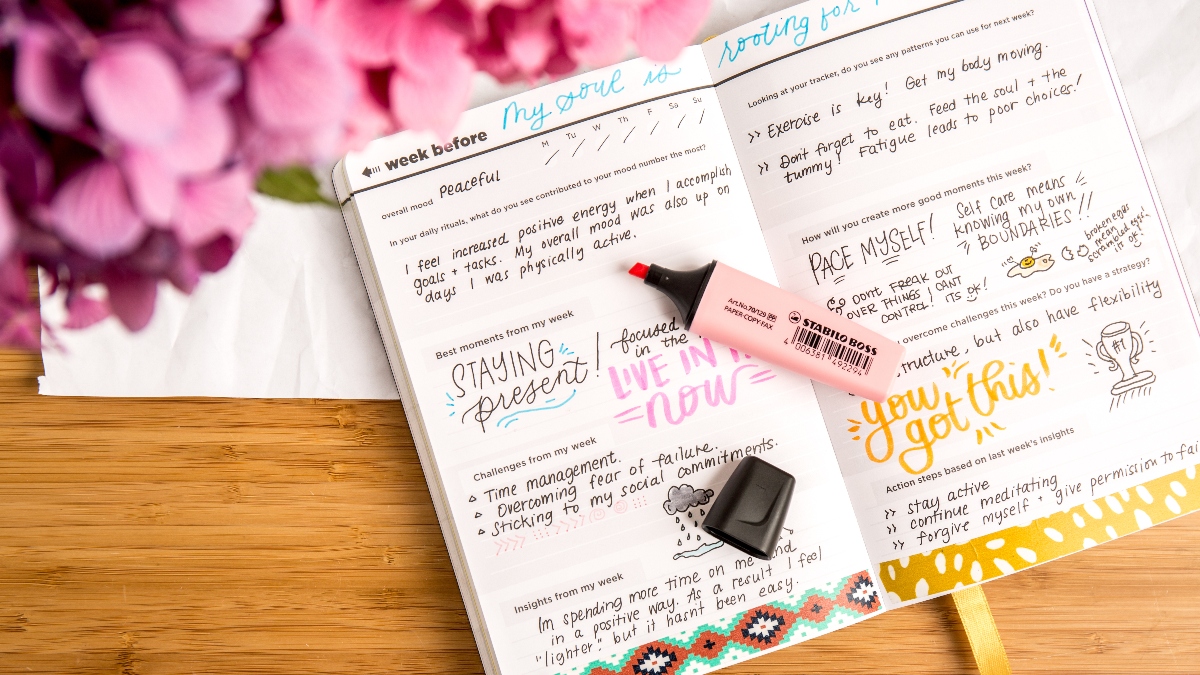Journaling. It may seem like a thing of the past, or simply something too time consuming, but there are lasting benefits in this age old exercise of putting pen to paper that are often overlooked.
Writing is a powerful practice, especially as a way to focus on and cultivate self-care. As social distancing, quarantine and isolation are becoming our new norm, it’s critical now more than ever to do whatever we can to support our emotional balance every day.
This can be difficult. Since we live in a culture where productivity is king, our drive for achievement can often come at the expense of our own well-being. Making it even more critical to put our mental health front and center in everything we do.
Benefits of journaling include:
On a most basic level, journaling helps you become more aware of your needs and desires. Writing down thoughts, moods, feelings, or simple observations for 15 or 20 minutes each day connects you to your inner self, which is a powerful first step in understanding your current mental state. This self-awareness increases emotional intelligence and as you begin to understand yourself better, you’re better equipped to understand the needs and desires of others.
Noelle Van Vlierbergen, creator of the Day by Daybook, takes it a step further. She believes journaling has the power to heal and can reveal things within us that may have otherwise been left undiscovered. Celebrating 9 years of sobriety, she has had her journal by her side every step of the way and understands firsthand the benefits of looking inward during times of difficult transition.
Putting pen to paper reveals what’s hidden in your subconscious and transforms it into something that feels more tangible and real. When that happens, you gain focus on what’s really going on and are less distracted by the self-defeating thoughts rolling around in your head.
Writing also plays a key role in helping you manage stress. It’s safe to say we are always experiencing a level of stress in reaction to what’s going on around us, to one degree or another. COVID-19 has brought stress and anxiety to the forefront of our lives a big way. This has been especially true for health workers on the front lines of this pandemic, who are experiencing trauma on a daily basis. Journaling facilitates a way to process these profound experiences, and helps us work through the intensity of emotion that comes up. When used in this way, it can almost take on the form of meditation, with its calming and cathartic effects.
As time goes on, looking back on what you’ve written is invaluable. It allows you to see patterns and progress that may have otherwise been overlooked. There is nothing more telling than looking back over a week, month or year to see how far you’ve come
Journaling with prompts is another great tool if you’re just getting started or have less time or patience with the process. Prompts can inspire an idea and help get your thoughts down on the page. They have a way of helping you connect the dots between your feelings and actions, paving the way for further growth and healing.
The good news is It’s easy to get started and journals come in all shapes and sizes. A simple notebook, a planner, or a structured journal with dates and illustrations are a few of the many options. Choosing the type of journal that resonates with you is what’s most important.
Beginning the practice is the first step. It a great way to add a healthy ritual to the beginning or end of each day. It may feel slow at first but continuing to write each day will become easier, and will very quickly become a much-anticipated exercise. Telling you more about yourself than you ever knew before.


